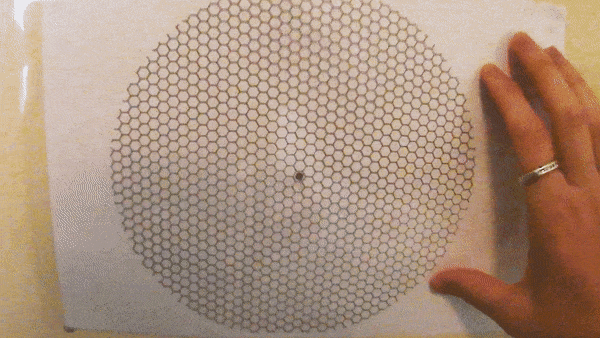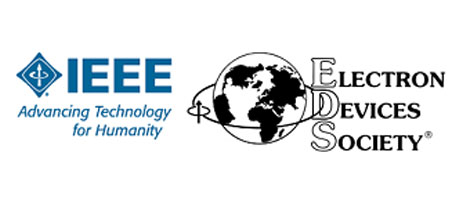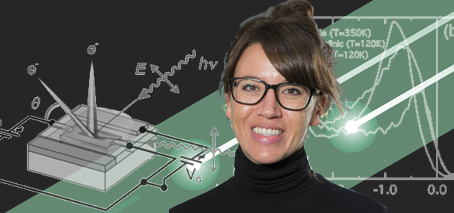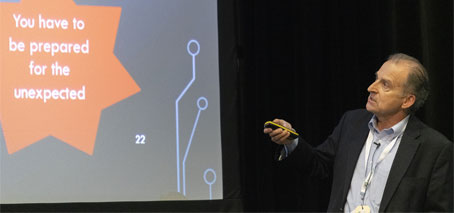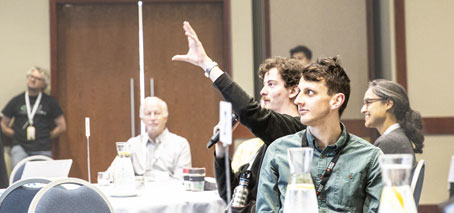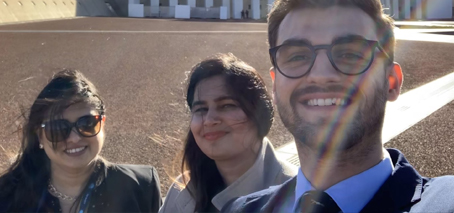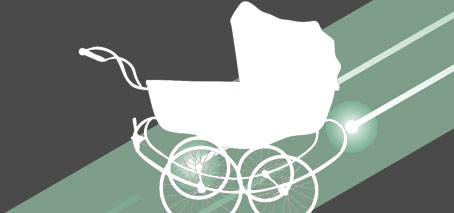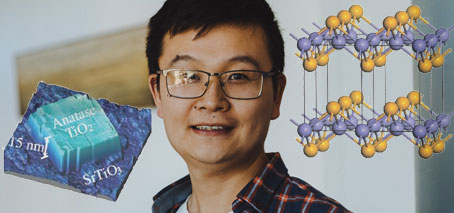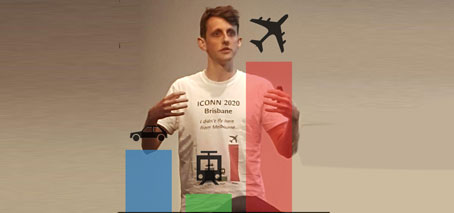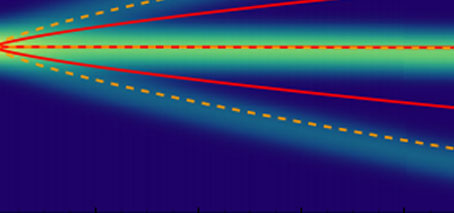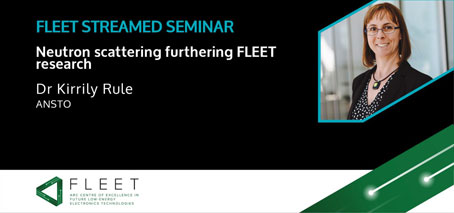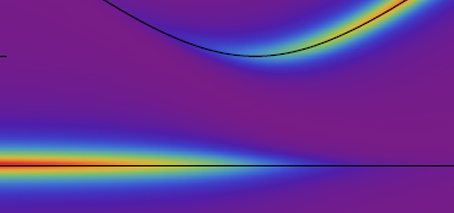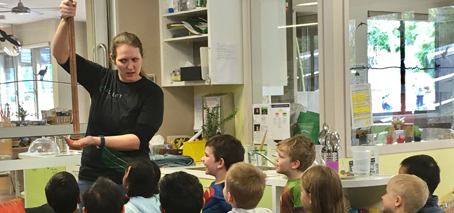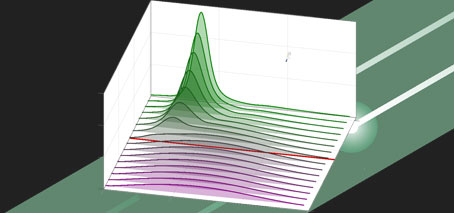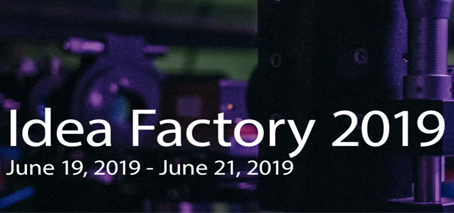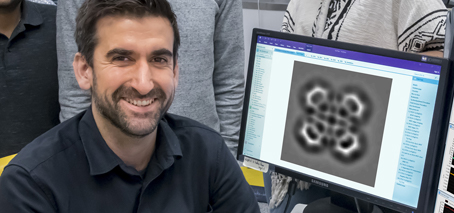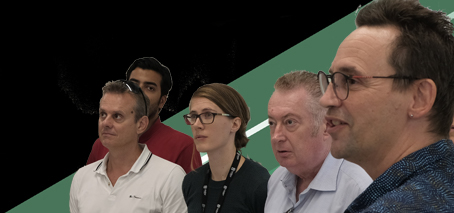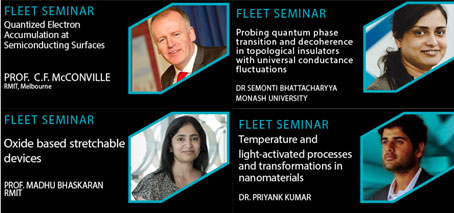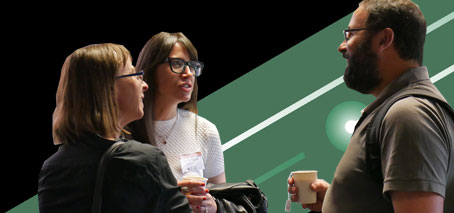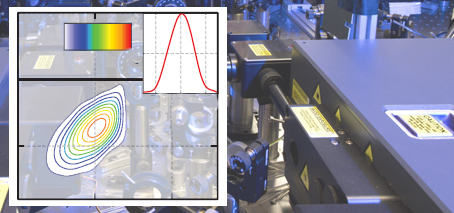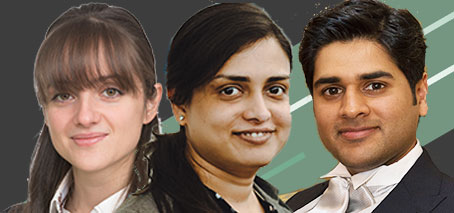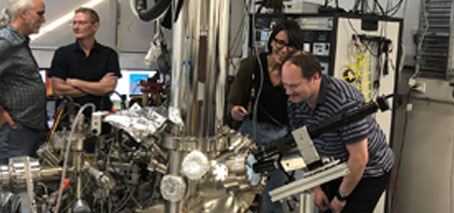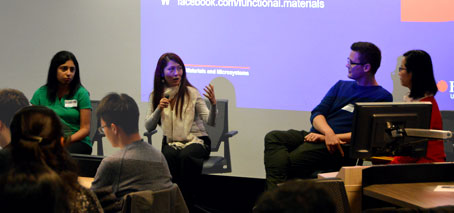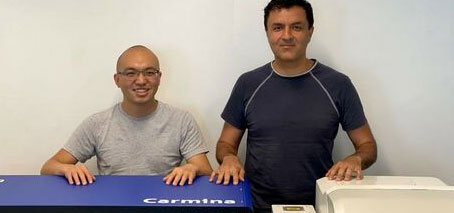A recent FLEET homescience exercise explained how simple geometric patterns printed on transparency (‘overhead projector sheets’, to those of us old enough to remember such technology), and overlaid at varying angles, produced a combined ‘Moire’ pattern of varying dimensions. Two sheets of repeating squares produces a Moire pattern of larger squares. Two sheets of repeating triangles produces a Moire pattern …
What comes after CMOS? An expert discussion
A panel of experts featuring Dr Paolo Gargini (formerly Intel, head of several international semiconductor roadmaps), Prof Michelle Simmons (UNSW, Director. ARC Centre for Quantum Computation and Communication Technology) and Prof Michael Fuhrer (Monash Uni., Director of ARC Centre of Excellence in Future Low Energy Electronics Technologies.) and a guided discussion about the future of electronics beyond CMOS and the role semiconductors and other materials …
New CI Julie Karel
It is a great pleasure to announce that Dr Julie Karel (Monash) is now a FLEET Chief Investigator. Dr Karel conducts research at the intersection of materials science and condensed-matter physics, to develop new materials for emerging low-energy nanoelectronic and magnetoelectronic devices. Within FLEET Dr Karel will pursue two research streams: Modification of materials through ionic liquid gating, towards FLEET’s goal …
FLEET’s engagement with industry in 2019
Working towards the overarching goal of creating pathways to translations of research outcomes, FLEET is building links with partners interested in novel electronic devices and systems. Progress towards this important goal in 2019 includes: Working to include topological transistors in the Institute of Electrical and Electronics Engineers’ (IEEE) International Roadmap for Devices and Systems Lodging two provisional patents Collaborating on …
Building future science leaders: FLEET development programs
FLEET ensures that our young researchers are prepared for future success – wherever their career takes them. The Centre currently supports 51 higher degree by research (HDR) students and 43 postdoctoral researchers with another 29 research affiliates working on FLEET projects and invited to Centre training, workshops and events. FLEET connects its researchers with internal and international networks; for example, …
Engaging with policymakers in 2019
Engaging with politicians and other policymakers is key for any Centre of Excellence, and pitching to politicians is a key skill for researchers, whether they are senior or just starting their career in research. In 2019, three FLEET ECRs were fortunate to attend Science Meets Parliament. Each proved to be remarkably adept at briefing members of the House of Representatives …
Family-friendly events
FLEET endeavours to lead change within the Australian science community. We believe that all conferences and workshops must work for researchers with families, rather than the other way around. FLEET’s annual workshops are unusual in that families and partners are welcomed to all meals and social events, and free on-site childcare is provided for all delegates. Involving families and children …
Interfaces the key in atomically-thin, ‘high temperature’ superconductors
An international FLEET collaboration publishing a review of atomically-thin ‘high temperature’ superconductors finds that each has a common driving mechanism: interfaces. The team, including researchers from the University of Wollongong, Monash University and Tsinghua University (Beijing), found that interfaces between materials were the key to superconductivity in all systems examined. The enhancement of superconductivity at interfaces (interface superconductivity enhancement effect) …
Congratulations Maciej Pieczarka ANU
Congratulations to FLEET’s Maciej Pieczarka, who has been awarded the START award for young Polish scientists by the Foundation for Polish Science. Dr Pieczarka is an experimental physicist working as a postdoctoral research fellow at the Australian National University in Prof Elena Ostrovskaya’s group. Within FLEET, Maciej studies exciton-polariton condensates, focusing on dynamical condensation and phase transitions of exciton-polariton fluids …
FLEET environmental group
While FLEET’s aim is to reduce the world’s ICT power consumption, we also know that some of the work we do today is having a detrimental effect on tomorrow’s environment. Initiated by FLEET ECRs, the Centre’s Environmental working group is taking a microscope to the environmental impact of FLEET. One early output has been a tool to calculate and compare …
Splitting quasiparticles with temperature: the fate of an impurity in a BEC
A new theoretical study at Monash University has improved our understanding of the interplay between quantum and thermal fluctuations (or excitations) in quantum matter. The study found that an impurity within a Bose-Einstein condensate (BEC) exhibits an intriguing energy spectrum as its temperature is raised above zero kelvin, with the ground-state quasiparticle splitting into a number of branches that depends …
Kirrily Rule live-streamed neutron-scattering talk to the AIP
FLEET Partner Investigator Kirrily Rule (ANSTO) introduced an audience of over 100 to the use of neutron scattering in material analysis last week, in a live-streamed seminar co-hosted with the Australian Institute of Physics. Neutron scattering is a powerful tool for investigating the structure and dynamics of condensed matter systems. In particular the magnetic spin of the neutron can interact …
Applying quantum-impurity theory to quantum fluids of light
A Monash-led study develops a new approach to directly observe correlated, many-body states in an exciton-polariton system that go beyond classical theories. The study expands the use of quantum impurity theory, currently of significant interest to the cold-atom physics community, and will trigger future experiments demonstrating many-body quantum correlations of microcavity polaritons. Exploring quantum fluids “Exciton-polaritons provide a playground in …
Engaging Australian public and school students with emerging physics
Australian, public-funded physics centres share a responsibility to engage the Australian community with physics, with the aim of: Increasing the participation of students in science and physics Increasing understanding of and passion for science in the general public Improving the outreach skills of early-career (and senior!) physicists. For example at FLEET (the ARC Centre of Excellence in Future Low-Energy Electronics …
Dissipationless physics provides path to sustainable electronics
The necessity (and price) of our digital connection An unprecedented number of Australians working from home during the 2020 coronavirus pandemic is a stark reminder of how vital electronic connections have become to community and economy. Computing has transformed society: we use our ubiquitous smartphones to access up-to-date weather predictions, to plot the best route through traffic, and to binge …
Seeking the sounds of superfluids at Swinburne
A Swinburne University of Technology study published this week examines the propagation of energy as sound waves in a quantum gas, revealing for the first time strong variations in the nature of the sound wave as a function of temperature. At low energies, this energy travels via the collective movement of many particles moving in sync – essentially, as sound …
Building future entrepreneurs: Idea Factory 2019
It’s not easy to convince a group of PhD students and early-career researchers to take three days away from their research to complete a training course. Yet this type of training can provide incredibly valuable skills for these researchers in their future careers and endeavours. At Idea Factory 2019, a joint project with FLEET and the ARC Centre of Excellence …
Equity and diversity initiatives at FLEET in 2019
Women are under-represented in science, particularly in physics. In this regard FLEET is no exception. We are taking steps to improve this. Research confirms that diverse teams do better science. We know that by improving our performance with respect to gender equity and diversity, we are not only doing what’s fair, we will also improve the effectiveness of our research …
Putting artificial intelligence to work in the lab
Automated Scanning Probe Microscopy (SPM) controlled by artificial intelligence First demonstration of fully autonomous, long-term SPM operation An Australian-German collaboration has demonstrated fully-autonomous SPM operation, applying artificial intelligence and deep learning to remove the need for constant human supervision. The new system, dubbed DeepSPM, bridges the gap between nanoscience, automation and artificial intelligence (AI), and firmly establishes the use of …
Hosting Materials Australia at UNSW
—by Cecilia Bloise, Node Coordinator, UNSW Materials Australia members were hosted on a tour of FLEET’s labs at UNSW in February. FLEET is an ARC Centre of Excellence researching novel materials for ultra-low energy electronics. FLEET represents over a hundred physicists and materials scientists working to develop a new generation of electronics to address the challenge of energy used in information …
Hosting research seminars in 2019
FLEET’s live-streamed seminars help share research results across the Centre, keeping members informed on latest FLEET research, and enhancing inter-node collaboration. Early-career researchers presenting the seminars gain valuable presentation experience, and benefit from immediate feedback on their research from diverse Centre members. In 2019, FLEET-wide live-streamed seminars were presented by: Dr Dan Sando (UNSW) Dr Jackson Smith (RMIT) Dr Maciej …
Spreading a passion for science: FLEET’s outreach efforts in 2019
FLEET focuses significant efforts on science outreach, with the aim of: Increasing the participation of students in science and physics Increasing understanding of and passion for science in the general public Improving the outreach skills of FLEET members Supporting the public discussion of FLEET-specific science. FLEET shares the responsibility to increase the participation of students in science, and to increase …
Supercool recognition for Qi-Kun Xue
Congratulations to Tsinghua Vice-President, and FLEET partner investigator, Prof Qi-kun Xue, one of the recipients of the 2020 Fritz London Prize, which recognises scientists making outstanding contributions in the field of low-temperature physics. Within FLEET, Prof Xue coordinates the collaboration between Tsinghua and FLEET, including a significant exchange program of student and postdoctoral researchers. He also provides critical insights in …
Hosting scientific meetings in 2019
FLEET supported significant international and Australian conferences in 2019, which was bookended by major, FLEET-hosted conferences at the end of 2018 (ICON2D-Mat) and beginning of 2020 (ICSCE). With new partner organisation the MacDiarmid Institute (NZ), FLEET co-organised the Conference on Signature of Topology in Condensed Matter in Italy, working closely with the International Centre for Theoretical Physics. Almost 120 researchers …
Ultrafast probing reveals intricate dynamics of quantum coherence
Ultrafast, multidimensional spectroscopy unlocks macroscopic-scale effects of quantum electronic correlations. Researchers found that low-energy and high energy states are correlated in a layered, superconducting material LSCO (lanthanum, strontium, copper, oxygen). Exciting the material with an ultrafast (<100fs), beam of near-infrared light produces coherent excitations lasting a surprisingly ‘long’ time of around 500 femtoseconds, originating from a quantum superposition of excited …
Three FLEET ECR Grant recipients
First recipients of FLEET ECR Grants Grants funding research trips to Italy, Singapore, US FLEET’s ECR Grants fund travel for ECRs and PhDs, developing networks and professional and scientific skills, including supporting travel to research facilities to learn new techniques, form new collaborations, or complete training. Of the 1st round’s eight applications, the Education & Training Committee decided to fund three: …
Becoming part of the (equity) solution: Catalysing Gender Equity conference
Three FLEET representatives at this month’s Catalysing Gender Equity 2020 in Adelaide. “For me, the conference highlighted how many great initiatives are already in action, improving gender equity around Australia,” said FLEET Equity Chair Jeff Davis. “However, there is still a lot of work to do and everyone can and needs to help change the culture.” Attending from FLEET were: …
MacDiarmid visit
Simon Granville, a Principal Investigator of the MacDiarmid Institute, visited FLEET collaborators at RMIT (Lan Wang and Torben Daeneke), Monash (Michael Fuhrer, Mark Edmonds, Julie Karel), UNSW (Jan Seidel’s group) and the University of Wollongong (Xiaolin Wang and David Cortie) in February to plan upcoming exchanges as part of several FLEET-MacDiarmid research collaborations funded in the 1st round of reciprocal …
YouRforum 2019: Got PhD, what next?
Jobs in many of the fastest-growing industries require science, technology, engineering and mathematics (STEM) skilled professionals. The Young Researchers Forum, aka YouRforum was created by FLEET COO Dr Tich-Lam Nguyen (then at the Monash Centre for Atomically Thin Materials) to provide opportunities for young STEM researchers to network, discuss research ideas and practice their professional skills. The program‘s ‘Got PhD, …
Studying phonon-polaritons in hBN
Phonon-polaritons in layered crystals have peculiar properties where they occur at the boundary between materials. In a new study led from UNSW, phonon-polaritons were studied in thin-layer hexagonal boron nitride (hBN) by combined scattering-type scanning near-field optical microscopy (s-SNOM) and Fourier transform infrared (FTIR) spectroscopy. Prof Kourosh Kalantar-zadeh’s multidisciplinary group at UNSW combined scattering-SNOM single-wavelength imaging and broadband scattering IR …

